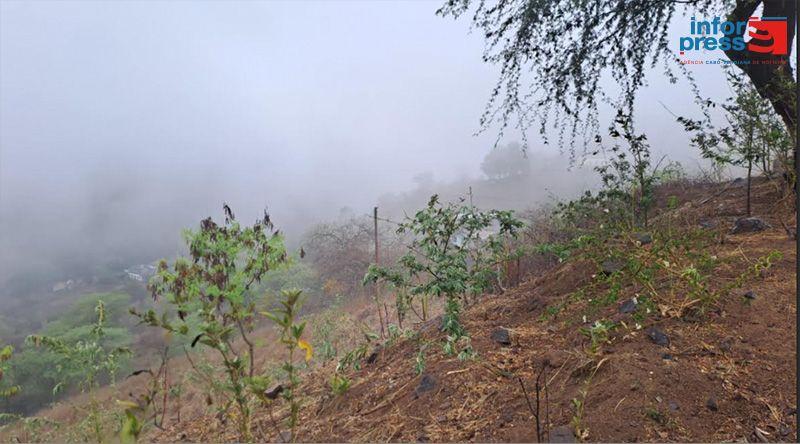Africa-Press – Cape verde. Farmers in the Santiago Norte region are optimistic and have already begun preparations for the next agricultural season, with most of them having prepared the land and sowing scheduled for the second half of July.
With the recent occasional rains over the last two days, in a round carried out in several municipalities in the region, Inforpress found that the land is being prepared on almost all slopes and hillsides, ready to await sowing.
Despite the positive outlook, farmers are noticing a downward trend in seed quantities and cultivated areas from year to year, and this reduction is explained by increased labor costs and the need to minimize losses in the event of droughts or insufficient rainfall.
In Santa Catarina, Nelita Tavares announced that she will begin sowing on July 15th. She is finishing clearing her land and has decided, instead of burning the plant residue, to preserve it to feed her animals.
Nelita commented that although weather forecasts are currently not as reliable as in the past, she remains hopeful for a good outcome for the agricultural cycle.
In São Salvador do Mundo, João Amaro predicts a favorable season, remembering that, last year, the rains began on July 8th and that sowing is scheduled for July 18th.
At this point, he says everything is ready, including cleared land, purchased seeds, and confirmed workers, although he mentioned that labor costs are higher than in previous years, ranging between two and three thousand escudos.
In São Lourenço dos Órgãos, Teresa Garcia plans to start sowing on July 24th, and intends to sow about two quarters of corn and a few liters of beans.
Despite rising labor costs, she makes an effort to optimize seed quantity, adopting a more conservative planting strategy to avoid waste and excessive spending, especially due to uncertain rainfall.
Pedro Varela, from Santa Cruz, almost eight decades old, expressed optimism based on natural signs and local traditions.
He noted that the “viciousness” of the tamarind trees at this time indicates a possible good agricultural year, and although he has not set an exact date for sowing, he said that his land is already prepared to receive the corn grains.
This year, he also decided to reduce the amount of seeds due to the prices charged, confident that a good season would guarantee his family’s livelihood.
Despite the positive mood, farmers are concerned about the increase in pests, such as monkeys and wild chickens, and are already worried about the expected outbreak of pests that have been attacking crops for some years, notably fall armyworms and locusts.
Regarding burning, a traditional practice in the region, there are signs of a decrease due to awareness-raising efforts promoted by environmental agencies, which warn of environmental and soil health risks.
The Government, through the MAA, has tried to raise awareness among farmers by showing that burning, in addition to eliminating plant remains that help form organic matter in the soil, harms air quality by releasing gases that contribute to global warming.
Inforpress contacted the Ministry of Agriculture and Environment delegation in Santa Catarina, and the delegation reported that it has materials and equipment available for pest control and encourages farmers to request support when necessary.
The Ministry of Agriculture and Environment (MAA) revealed this Tuesday that actions are underway for the agricultural campaign, budgeted at around 44.5 million escudos, to ensure a good agricultural year on all islands.
And the list of actions includes phytosanitary measures, such as pest control, with a focus on biological methods, and technical assistance to farmers.
For More News And Analysis About Cape verde Follow Africa-Press






